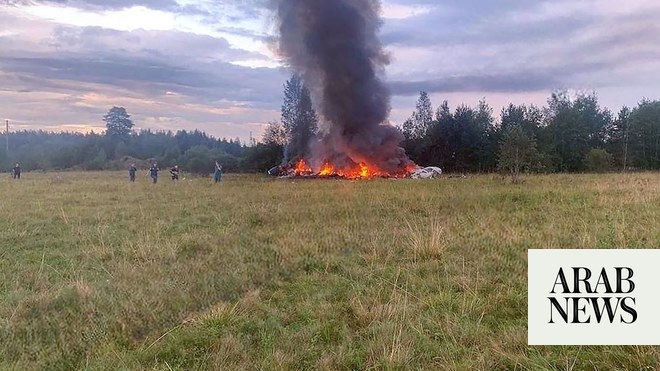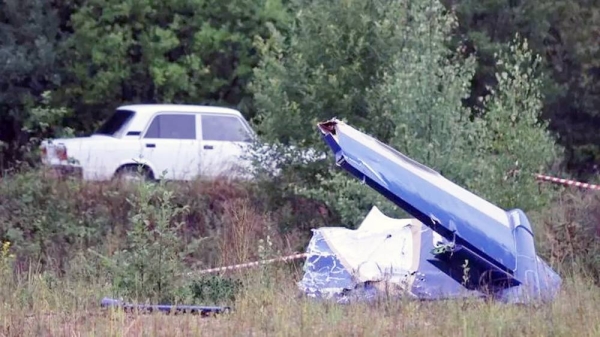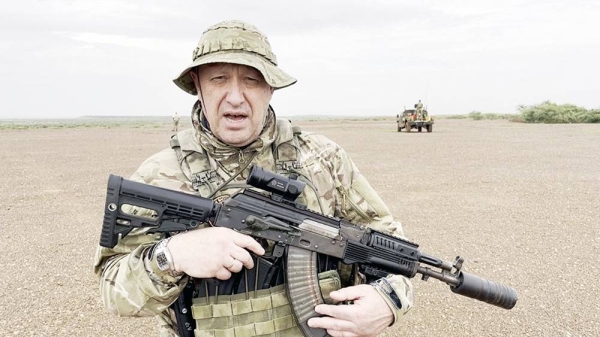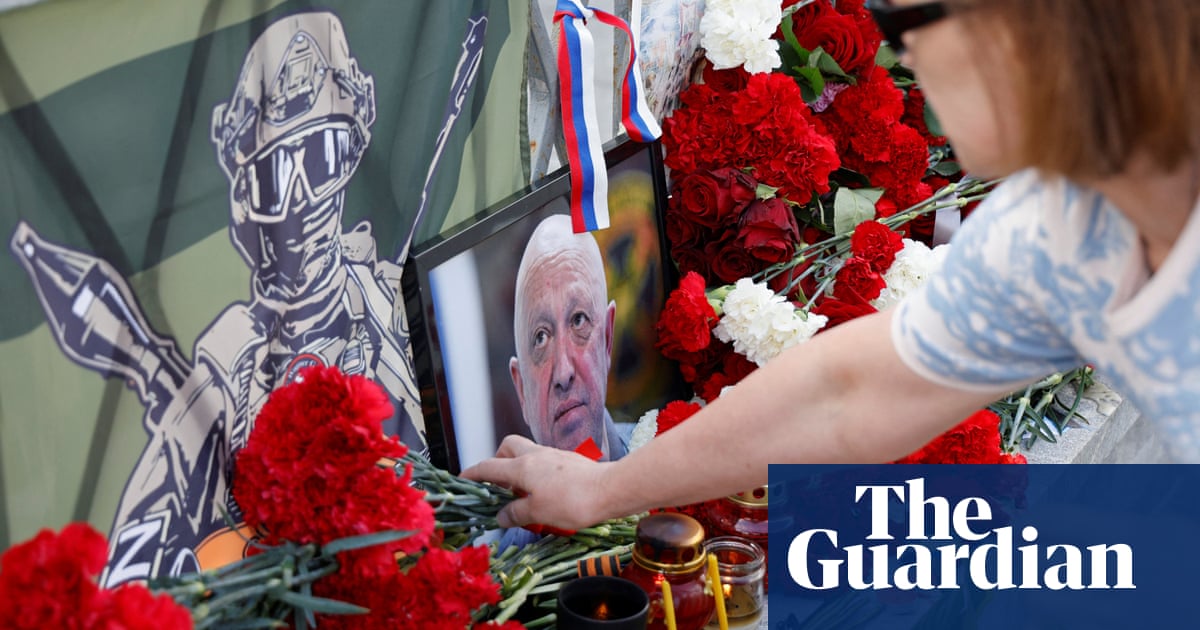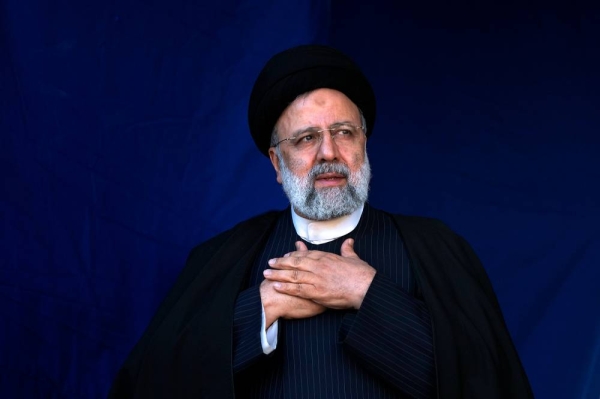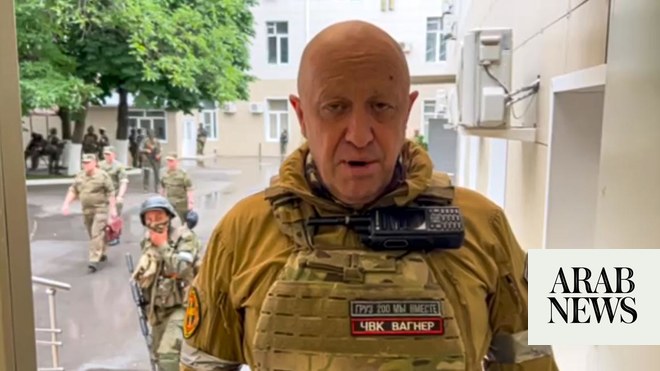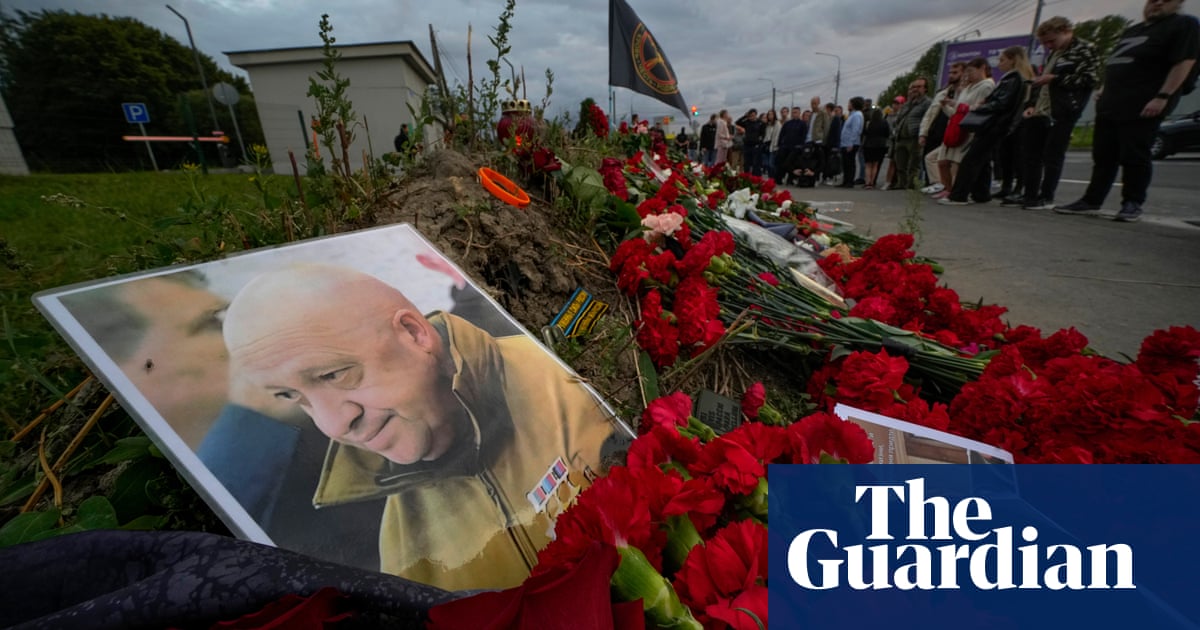
Russia’s investigative committee, which investigates serious crimes in the country, has confirmed that the head of the Wagner mercenary group, Yevgeny Prigozhin, was among the people killed in a plane crash.
The committee said on Sunday that after forensic testing, all 10 bodies recovered at the site had been identified, and their identities “conform to the manifest”.
Russia’s civil aviation authority said previously that Prigozhin and some of his top lieutenants were on the list of those onboard the plane that crashed on Wednesday.
The announcement prompted days of speculation over the fate of Prigozhin. He was known to have body doubles and to use multiple passports and disguises while travelling. There had been false reports of his death twice before, including after a plane crash in the Democratic Republic of the Congo in 2019.
On Friday the UK Ministry of Defence said in a daily intelligence update that while Prigozhin, 62, had been known to “exercise exceptional security measures”, it was “highly likely” that he was among the dead.
Russia’s statement on Sunday did not provide any details as to what may have caused the crash, which came two months after Prigozhin’s short-lived mutiny in which Wagner troops captured a defence headquarters in Rostov and marched on Moscow.
US and western officials have said the plane was probably brought down by an intentional explosion, leading to it crashing into a field about 185 miles (300km) north of Moscow.
Suspicions swiftly centred on Vladimir Putin, with US and western officials saying it was very likely he was the architect of the incident, as Prigozhin’s armed revolt had ranked as the most serious challenge to the Russian leader in his 23-year hold on power.
The US president, Joe Biden, told reporters after the crash: “I don’t know for a fact what happened, but I’m not surprised. There’s not much that happens in Russia that Putin’s not behind.”
The Kremlin has denied that it assassinated Prigozhin, characterising western intelligence assessments of Putin’s potential involvement as “an absolute lie”.
Reaction has been relatively limited to the point of indifference in Ukraine, as Prigozhin was no longer seen as a significant figure after the failed mutiny. His Wagner Group, once a key unit operating in Ukraine, had withdrawn from the country three months ago after the capture of Bakhmut.
Putin has since moved swiftly to capitalise on Prigozhin’s death by issuing a decree requiring Wagner and all other private military company fighters to swear an oath of allegiance to Russia.
On Thursday, he appeared to eulogise Prigozhin in a televised interview, saying he had known the Wagner head since the early 1990s. He described Prigozhin, a former hotdog seller from Putin’s home town of St Petersburg, as someone who had “made some serious mistakes in life” but praised him as a “talented man, a talented businessman”.
Putin said the passengers on the plane had “made a significant contribution” to the fighting in Ukraine. “We remember this; we know, and we will not forget,” he added.
Abbas Gallyamov, a political analyst and former Putin speechwriter, told the Associated Press that although the Kremlin had cut a deal with Prigozhin to end the armed revolt, allowing him to walk free without any charges levied against him, this probably did not sit well with the president.
The mutiny “showcased Putin’s weakness to everyone”, said Gallyamov. That reality “completely dissatisfied Putin because it was an open invitation for potential mutineers”, he added.




